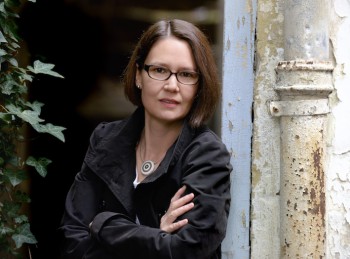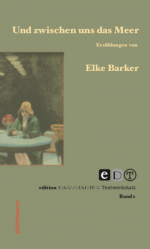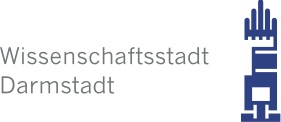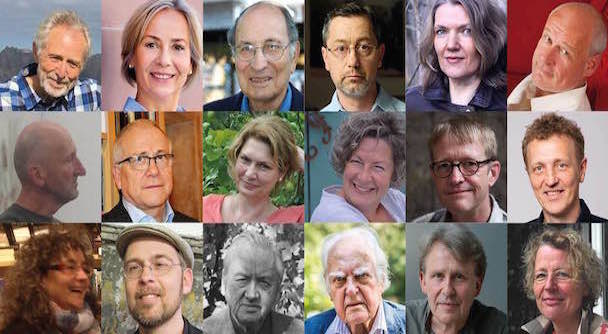Authors & Books
Elke Barker

Elke Barker was born in Karlsruhe in 1969, studied Romance and German Studies in Heidelberg. She spent time abroad in Paris, Clermont-Ferrand and Lyon. She is a freelance journalist.
From 2008 to 2011 she took part in Kurt Drawert's Darmstadt Textwerkstatt, and since 2011 she has been working on her short prose in Textwerkstatt II with Martina Weber. She was a scholarship holder at the Förderkreis deutscher Schriftsteller in Baden-Württemberg e.V. Literary publications in magazines and anthologies. In »Krautgarten, Forum für junge Literatur« no. 59, 2011; in »L. Der Literaturbote« no. 105, 2012, and no. 107/108, 2012; in »Bawülon«, 2013; in »Kasinostraße 3, 15 Jahre Darmstädter Textwerkstatt«, 2014; in »Anthologie Kogge-Literaturforum Himmerod«, 2016; in »Von Aprikosen und Angsthasen—Ausgewählte Stipendiatentexte Förderkreis deutscher Schriftsteller in Baden-Württemberg«, 2016; in »Begegnungen—Das lange Tal der Kurzgeschichten«, Mölltaler Geschichten Festival, 2019.
»And between us the Sea« (orig. »Und zwischen uns das Meer«) is Elke Barker's first independent literary production. I am delighted to have the collection in the publishing programme.
Elke Barker's volume »Und zwischen uns das Meer« is also Volume 1 in the new »Edition Darmstädter Textwerkstatt« edited by Kurt Drawert—stay curious!
HERE the first review, by Eric Giebel
with parallels to Peter Kurzeck and Zsuzsa Bánk
and in the Mannheimer Morgen of 12.05.2022

And between us the Sea
24 Short Stories
- Volume 1
- Edition Darmstädter Textwerkstatt
- Editor and Preface by
- Kurt Drawert
- 152 pages
- Hardcover with ribbon
- Comment by Martina Weber
978-3-86638-370-8

The volume brings together 24 short stories. Some of them were written in the Darmstädter Textwerkstatt.
Elke Barker writes short prose that consistently sets its very own movements of seeing, listening and speaking and imperceptibly shifts the reader's perceptive abilities on the few pages of its events—until we, together with the author, whirl into the funnel of an upheaval or, as if by chance, are deposited again in the familiar.—In his foreword, Kurt Drawert writes in his resourcefulness that shines as much in detail as in the whole:
»I don’t want to tell the story here because it would detract from being a metaphor. For the sea is only apparently the concrete topos used in this story; rather, in its symbolic meaning, it is the insurmountable rift that separates people from one another. This rift—I dare to highlight it as a central object of conflict for all narratives and to understand it paradigmatically—is irreversible like the human lack in and of itself. But this is not explicitly stated at all, because it is not evident to the narrator himself. He stands somewhere in the shadows of the studio into which that man with the unfamiliar name Aboud suddenly intrudes, and lays out the images and scenes before us like a rebus that we ourselves have to complete. This double connotation of serving lexical literalness and symbolic figure in equal measure, and leaving it to the reader to decide which form of reality to ascribe it to, is part of the stylistic method of the prose and gives it the aura of the ineffable.«
In addition to all this ineffable, indeed, at times uncanny, Martina Weber, who adds an additional location to the volume, emphasises this about Elke Barker's storytelling:
»She is open to what happens in her close surroundings, observes people, gets involved. Trust is unpredictable. Suddenly it shimmers, between strangers, and just as suddenly it has disappeared in a friendship. At times, elements of a dream logic flash up, creating irritation and depth. Even a non-place like a subway becomes unique, experiences magic. The tension lies above all in the atmosphere ...«
Both the editor and publisher would like to express their sincere thanks to the City of Darmstadt for kindly sponsoring!









